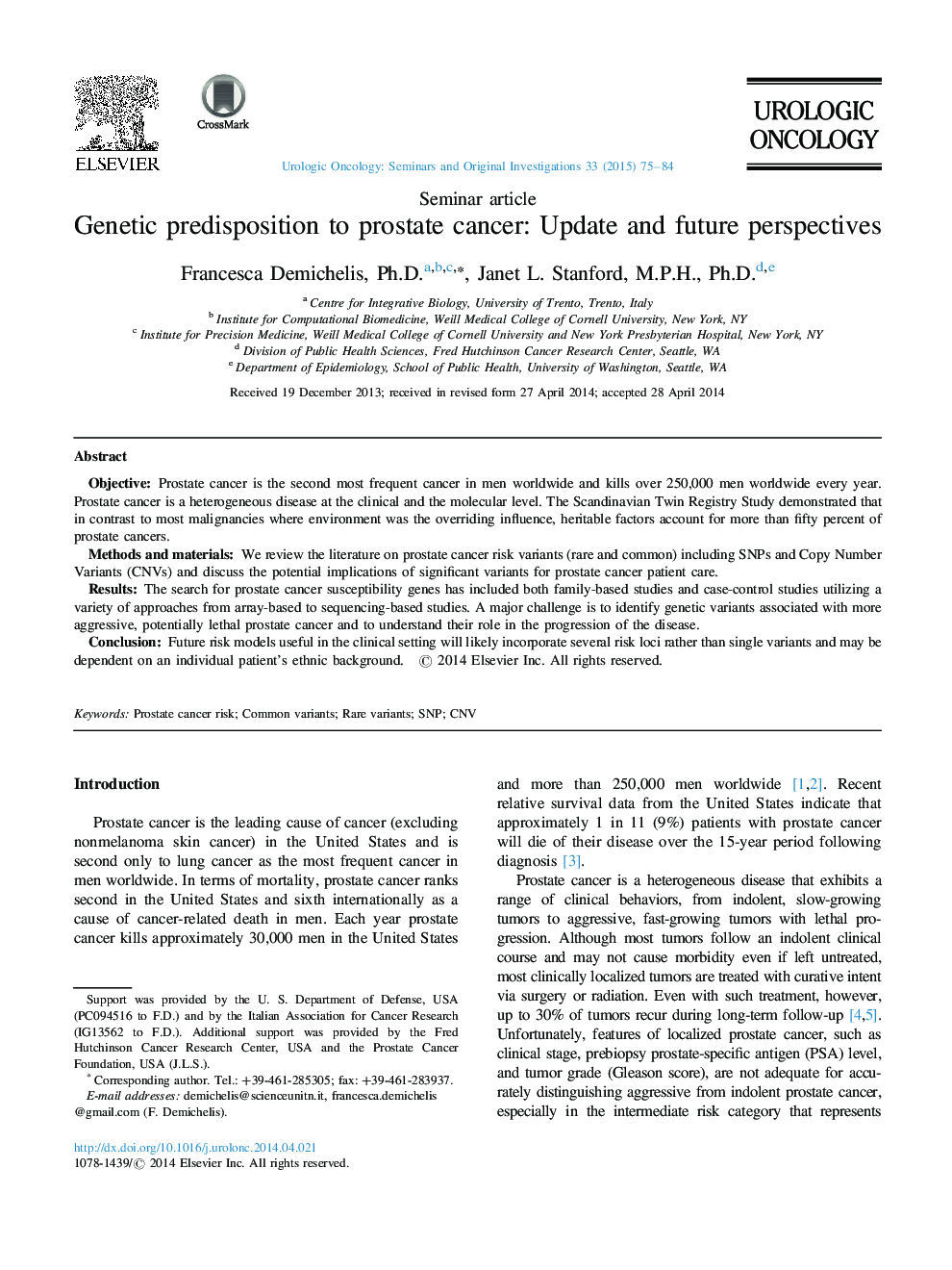| Article ID | Journal | Published Year | Pages | File Type |
|---|---|---|---|---|
| 6194148 | Urologic Oncology: Seminars and Original Investigations | 2015 | 10 Pages |
ObjectiveProstate cancer is the second most frequent cancer in men worldwide and kills over 250,000 men worldwide every year. Prostate cancer is a heterogeneous disease at the clinical and the molecular level. The Scandinavian Twin Registry Study demonstrated that in contrast to most malignancies where environment was the overriding influence, heritable factors account for more than fifty percent of prostate cancers.Methods and materialsWe review the literature on prostate cancer risk variants (rare and common) including SNPs and Copy Number Variants (CNVs) and discuss the potential implications of significant variants for prostate cancer patient care.ResultsThe search for prostate cancer susceptibility genes has included both family-based studies and case-control studies utilizing a variety of approaches from array-based to sequencing-based studies. A major challenge is to identify genetic variants associated with more aggressive, potentially lethal prostate cancer and to understand their role in the progression of the disease.ConclusionFuture risk models useful in the clinical setting will likely incorporate several risk loci rather than single variants and may be dependent on an individual patient’s ethnic background.
